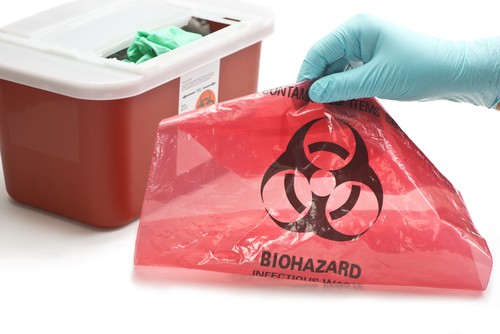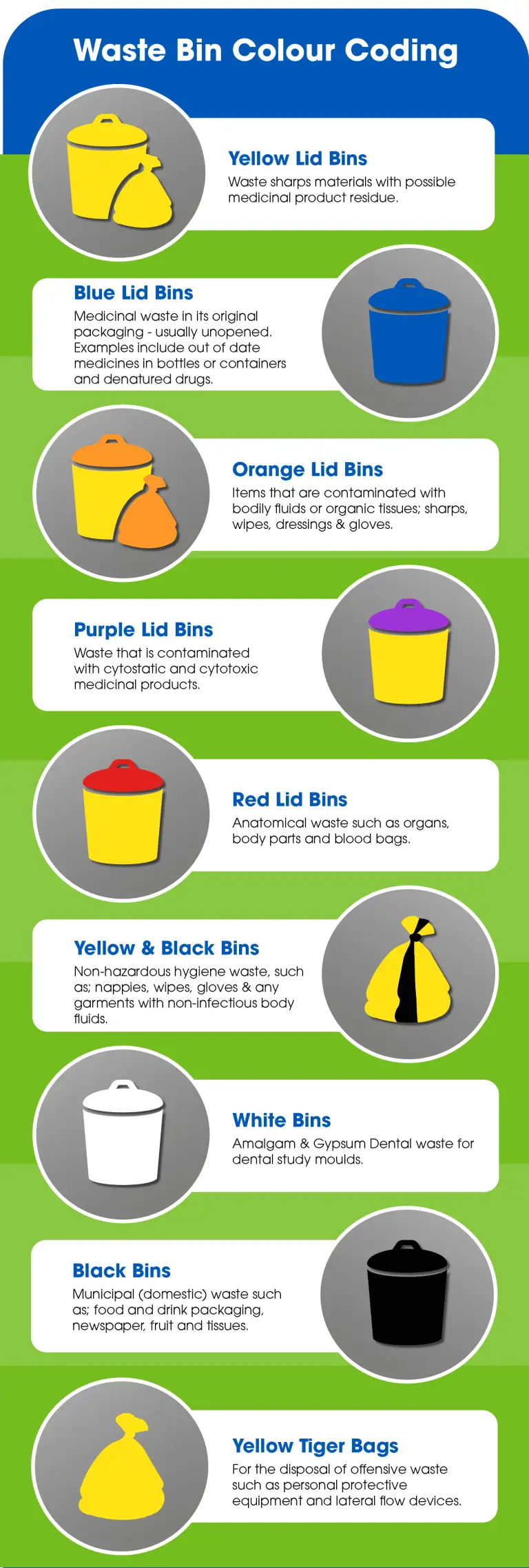Turnkey Medical Waste Removal Service: Seamless Disposal for Healthcare Facilities
Making Sure Safe Handling and Disposal of Medical Waste
Making sure secure handling and disposal of clinical waste is of extremely important value in health care setups. Incorrect administration of medical waste can pose substantial threats to the atmosphere, public health, and healthcare employees. In this introduction, we will discover the relevance of appropriate medical waste monitoring, the dangers connected with improper handling and disposal, as well as the standards and techniques that can be applied to guarantee its safe disposal.
Relevance of Appropriate Medical Waste Monitoring
Appropriate medical waste monitoring is of utmost significance in ensuring the safety and security and well-being of medical care experts, patients, and the public. Medical waste refers to any kind of waste produced by medical care facilities throughout the diagnosis, therapy, or immunization of human beings or animals. This waste can posture major wellness risks otherwise managed and disposed of appropriately.
Among the primary reasons that proper medical waste monitoring is essential is to avoid the spread of contagious diseases. Clinical waste, such as used needles, contaminated dressings, and biological materials, can bring hazardous pathogens. If not taken care of and gotten rid of appropriately, these pathogens can be transmitted to health care employees, patients, waste handlers, and even the public, bring about the potential outbreak of illness.
Furthermore, correct clinical waste management helps safeguard the atmosphere - medical waste disposal service. Clinical waste has hazardous materials, including chemicals, drugs, and contaminated materials. When not taken care of suitably, these compounds can infect dirt, water bodies, and the air, posturing a substantial threat to communities and public health and wellness
Additionally, efficient medical waste administration guarantees compliance with international standards and neighborhood laws. Federal governments and governing bodies have actually established methods and standards to make sure the risk-free handling, storage, transport, and disposal of clinical waste. Sticking to these policies is vital to prevent legal consequences and keep the online reputation and credibility of medical care centers.
Dangers of Improper Handling and Disposal

People can also be subjected to these contagious conditions if clinical waste is not properly thrown away. For example, if infected needles or various other sharps are not disposed of in designated puncture-proof containers, they may unintentionally prick clients, resulting in prospective infections. Additionally, if medical waste is not segregated correctly, there is a danger of cross-contamination between different kinds of waste, more raising the opportunities of condition transmission.
Incorrect disposal of medical waste can also have detrimental results on the atmosphere and the public. If medical waste is not dealt with and thrown away properly, it can contaminate water resources, dirt, and air, causing the spread of contaminants and diseases. This can have lasting repercussions on communities and public health.
Standards for Safe Handling of Medical Waste
Carrying out effective methods for the risk-free handling of clinical waste is necessary in guaranteeing the defense of health care professionals, individuals, and the public. These standards are important in minimizing the threats associated with the handling and disposal of clinical waste, such as infections, injuries, and environmental air pollution.
Firstly, medical care facilities have to establish a detailed waste management strategy that sticks to regional, nationwide, and international guidelines. This strategy ought to consist of clear instructions on waste segregation, product packaging, storage space, labeling, and transportation. It is essential to divide different kinds of waste, such as sharps, transmittable products, drugs, and non-hazardous waste, to avoid cross-contamination and promote secure disposal.
Additionally, health care employees must receive detailed training on proper waste handling methods. They must be enlightened on the potential risks of clinical waste, the ideal usage of personal protective devices (PPE), and the right treatments for taking care of, transferring, and disposing of various kinds of waste.
Furthermore, healthcare facilities ought to on a regular basis check Visit Website and examine their waste management practices to ensure compliance with guidelines. This includes conducting regular inspections, evaluating waste handling procedures, and providing feedback and training to employee.
Reliable Approaches for Garbage Disposal
To make certain the secure handling and disposal of clinical waste, it is necessary to utilize efficient techniques for waste disposal. Clinical waste can posture substantial dangers to public health and wellness and the environment otherwise taken care of and taken care of appropriately. Healthcare centers and waste management organizations have to carry out suitable strategies to minimize these dangers.
It entails separating various types of medical waste based on their features. Healthcare facilities need to offer clear standards and training to staff members on just how to segregate waste properly.

Moreover, medical care centers should work together with accredited waste monitoring firms to ensure proper disposal of medical waste. These business have the know-how and tools called for to safely handle and dispose of clinical waste in compliance with laws and finest methods.
Training and Education And Learning for Health Care Professionals
Health care experts play an essential duty in making certain the secure handling and disposal of clinical waste via thorough training and education and learning. It is necessary for doctor to have a deep understanding of the possible threats related to medical waste and the appropriate protocols for its management. By receiving correct training, medical care experts can reduce the potential transmission of contagious conditions, stop environmental contamination, and safeguard both themselves and the general public.

Additionally, training programs must emphasize the usage of personal protective tools (PPE) and proper hand health techniques when handling clinical waste. medical waste disposal. Medical care specialists ought to recognize how to properly dispose and make use of of PPE to protect themselves from potential direct exposure to hazardous products. They must also be enlightened on the importance of routine handwashing and the appropriate use hand sanitizers to minimize the spread of contagious illness
Proceeding education and routine updates on clinical waste management methods are crucial for health care specialists. As standards and regulations develop, it is necessary to keep doctor notified regarding any kind of changes in protocols and finest techniques. This will certainly ensure that they stay updated and keep a high criterion of safety in disposing and handling of medical waste.
Final Thought
In verdict, correct handling and disposal of clinical waste is crucial to guarantee the security of health care experts, individuals, and the setting. Disregarding to adhere to laws and standards can cause numerous threats and threats. Applying reliable approaches for garbage disposal and giving ideal training and education and learning for health care experts are vital in preserving a risk-free healthcare environment. By sticking to these methods, we can alleviate the prospective risks connected with medical waste.
Clinical waste refers to any waste generated by medical care facilities throughout the medical diagnosis, treatment, or booster shot of pets or people. If clinical waste is not set apart appropriately, there is a danger of cross-contamination between different kinds of waste, further raising the possibilities of disease transmission.
It is essential to separate various types of waste, such as sharps, transmittable materials, drugs, and non-hazardous waste, to stop cross-contamination and promote risk-free disposal. WasteX Medical Waste Disposal.
To ensure the secure handling and disposal of medical waste, it is necessary to employ efficient approaches for waste disposal. Furthermore, healthcare centers should establish a normal waste collection and transport schedule to stop waste build-up and reduce the danger of crashes or contamination.